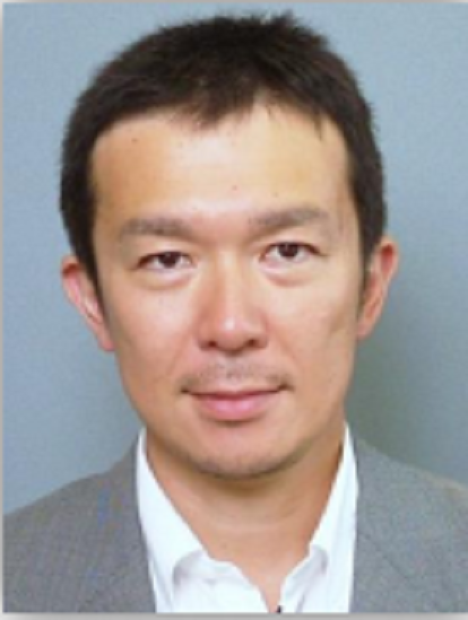Achieving a Sustainable Future through Health Partnerships
Date
24 September 2013
Time
6:30 pm - 8:00 pm
Location
Pfizer Inc., Conference Room ‘Times Square’, building 219, 4th floor
Attendance
This event has now passed. To browse our upcoming events click here.
On 24 September during the UN General Assembly, the Geneva-based International Federation of Pharmaceutical Manufacturers and Associations (IFPMA), Business for Social Responsibility (BSR), the Government of Japan, and the Global Health Innovative Technology Fund (GHIT) hosted a side event called ‘Achieving a Sustainable Future through Health Partnerships.’ Taking place at Pfizer headquarters in New York, the event attracted more than 80 participants including diplomats, UN officials, product-development partnerships and NGO leaders.
IFPMA Director General, Eduardo Pisani, welcomed participants. The global research-based pharmaceutical industry association, IFPMA, has been a consultative partner in official relations with the UN Economic and Social Council (ECOSOC) and the World Health Organization (WHO) for decades and attaches a high priority to collaborating with global institutions. Mr. Pisani highlighted contributions by the research-based pharmaceutical industry since 2000 toward achieving the UN’s Millennium Development Goals (MDGs) which clearly demonstrates the value and the impact of collaboration and partnership in global health. Today, there are over 220 partnerships around the world involving the pharmaceutical industry to reduce suffering caused by a wide range of diseases. These programs focus on disease prevention, health system capacity building, pharmaceutical research and development, and medicine and vaccine donations.
Dr. Shiro Konuma, Director of Global Health Policy Division of the Japanese Ministry of Foreign Affairs, described work of the GHIT Fund, of which he is a Board member. This first-of-its-kind partnership in Japan promotes the discovery and development of new health technologies, including drugs, vaccines and diagnostics, for infectious diseases prevalent in developing countries. Facilitating international partnerships that enable Japanese technology, innovations, and insights to play a more direct role in reducing disparities in health between the world’s rich and poor this innovative public-private partnership (PPP) is a consortium of Japanese pharmaceutical companies and the Bill & Melinda Gates Foundation.
Caroline Roan, Vice President of Corporate Responsibility at Pfizer Inc. and President of The Pfizer Foundation, described how applying the company’s resources, expertise, and medicines make both social and business sense. She explained that the past ten years of success – and failure – have demonstrated that multi-stakeholder partnerships are the key to sustainability. Ms. Roan also described Pfizer’s efforts, with governments, foundations and NGOs, to expand access to vaccines for children through innovative mechanisms like Advanced Market Commitments. Additionally, Ms. Roan said, the company will continue to promote family planning and reproductive health in least developed countries and to enhance the capacity of health systems, health workers, and NGOs on the ground in developing countries through programs like the Pfizer Global Health Fellows.
Aron Cramer, President and CEO of Business for Social Responsibilty, recounted how BSR’s Healthcare Working Group developed the “Guiding Principles on Access to Healthcare” (GPAH) to help frame and describe the healthcare industry’s approach to reducing the global burden of disease and improving global health outcomes. A set of industry-wide principles, the GPAH recognize the importance of five core areas: collaboration, research and development, expanding availability of healthcare services, developing health systems resources, and respecting human rights. The GPAH were signed by several CEOs of major healthcare companies with global leadership in pharmaceuticals, vaccines, diagnostics, and other medical technology. Mr. Cramer also described how BSR works with its global network of more than 250 member companies, and from offices in Asia, Europe, and North and South America, to develop sustainable business strategies and solutions in order to build a just and sustainable world.
Dr. Mel Spigelman, President and Chief Executive Officer of the Global Alliance for Tuberculosis (TB) Drug Development (TB Alliance), underscored the global health impact of cross-sector partnerships. Dr. Spigelman focused his remarks on the problem of TB and drug-resistant TB as well as on the needs for new treatments and for forging new partnerships. In particular, he applauded the promising work of the GHIT Fund.
The discussion echoed themes raised by the global community during UN Week to chart the path to better and sustainable prosperity in the 21st Century. Mr. Pisani concluded the event by stressing that unmet medical needs demand continued innovative biopharmaceutical research –a key role of innovative pharmaceutical companies – and supporting biomedical research equals supporting global health.
Speakers

Mr Eduardo Pisani became Director General of the IFPMA at the
end of 2009. He came to the IFPMA from Bristol-Myers Squibb, a
company he joined in 2001, and in which he had risen to the
position of Vice President, International Policy and Government
Affairs. Prior to that, Mr. Pisani held positions as legal counsel at
Immuno AG in Belgium and Austria, at Baxter Healthcare in Belgium
and Italy, and in European Policy and Government Affairs at
Adamson Associates and SmithKline Beecham in Belgium. He
started his career in 1989, in the marketing department of Lederle
France. Mr. Pisani graduated in Law at the University of Catania,
Italy.
As IFPMA Director General, Mr Pisani leads the dialogue between
research-based pharmaceutical companies and associations with
the United Nations and its specialized agencies. Together with his
team and working with IFPMA President and Vice Presidents, Mr
Pisani shares the expertise and perspectives of the industry in
global health discussions.
Mr Pisani believes that platforms for constructive policy discussion
are essential to effective policy making and to public health, and
has been instrumental in shaping many of IFPMA’s leading
initiatives such as those on NCDs and on NTDs.

Dr. Shiro Konuma is currently Director of Global Health Policy
Division at the Ministry of Foreign Affairs of Japan.
He graduated from the Faculty of Medicine, University of Tokyo in
1992 and worked for the University of Tokyo Hospital until joining
the Japanese diplomatic service in 1994. In 1996, he studied at
INSEAD in France.
Prior to his current assignment, he was Counsellor of the
Permanent Mission of Japan in Geneva, responsible for
development and macro-economic issues in the WTO and other
trade related organizations.

Ms Caroline Roan is Vice President of Corporate Responsibility at
Pfizer Inc, headquartered in New York. She is also President of ‘The
Pfizer Foundation’.
Ms Roan has direct oversight of Pfizer’s Corporate Responsibility
(CR) function, including stakeholder engagement, reporting, and the
design of social investment strategies. During her tenure, Pfizer has
refined its CR strategy to better support the company’s evolving
business priorities and communicate more effectively with investors
and other stakeholders about how Pfizer integrates CR issues into its
business practices.
Ms Roan has spearheaded Pfizer’s adoption of more innovative
public reporting on responsibility issues. This has included the
publication of Pfizer’s award-winning first “one report” which
combined the annual and corporate responsibility reports. In
addition, she led the team that launched “Get Old,” an initiative
designed to improve connection with consumers via social media.
Under Ms Roan’s leadership, Pfizer continues to be a top corporate
donor and has received local, national and international awards and
recognition for its corporate responsibility programs.
In 2012 Ms Roan was selected to serve as a David Rockefeller Fellow
through the Partnership for New York City.
Ms Roan received her Bachelor of Arts in sociology and anthropology
from Earlham College, Richmond, Indiana, and her Masters of Public
Policy from the School of International and Public Affairs, Columbia
University.

Dr Aron Cramer is recognized globally as a preeminent authority on
corporate responsibility and sustainability strategy by business, NGOs,
and the public sector. Under his leadership, BSR has doubled its staff
and expanded its global presence, which currently includes offices in
Beijing, Copenhagen, Guangzhou, Hong Kong, Paris, São Paulo, New
York, and San Francisco.
On a day-to-day basis, Dr Cramer advises senior executives at more
than 250 member companies and other global businesses, and
regularly is featured as a speaker at major events and in a range of toptier
media outlets.
He is co-author of the book Sustainable Excellence: The Future of
Business in a Fast-Changing World, which spotlights some of the
sustainability strategies that drive business success.
Dr Cramer joined BSR in 1995 as the founding director of its business
and human rights program, and opened BSR’s Paris office in 2002,
where he worked until assuming his current role as President and CEO
in 2004.
Previously he practiced law in San Francisco, and worked as a journalist
at ABC News in New York.

Dr. Spigelman is the President and Chief Executive Officer of the
Global Alliance for TB Drug Development (TB Alliance). Prior to being
appointed President and CEO in 2009, Dr. Spigelman served for five
and a half years as the Director of Research and Development at the
TB Alliance. A highly regarded expert in domestic and international
drug research and development, Dr. Spigelman previously spent a
decade managing drug R&D at Knoll Pharmaceuticals (a division of
BASF Pharma). As Vice President of R&D at Knoll for eight years, Dr.
Spigelman directed clinical development and supervised all R&D
activities from basic discovery to regulatory approval and Medical
Affairs. He established global R&D processes as part of Knoll’s senior
R&D management team, oversaw a marked increase in US regulatory
filings and approvals, and supervised joint R&D programs with multiple
other pharmaceutical companies.
Dr. Spigelman received his undergraduate degree from Brown
University and his medical degree from the Mt. Sinai School of
Medicine where he specialized in Internal medicine, Neoplastic
Diseases and Preventive Medicine. Dr. Spigelman holds board
certifications from the American Board of Internal Medicine, the
American Board’s Subspecialty Board of Medical Oncology, and the
American Board of Preventive Medicine and was the recipient of the
American Cancer Society Clinical Oncology Career Development Award
(1985-1988).
Presently, Dr. Spigelman serves on the Coordinating Board of the WHO
Stop TB Partnership, is Co-chair of the Working Group on New Drugs
of the WHO Stop TB Partnership, and is a member of the Governing
Board of the Tres Cantos Open Lab, GlaxoSmithKline.


